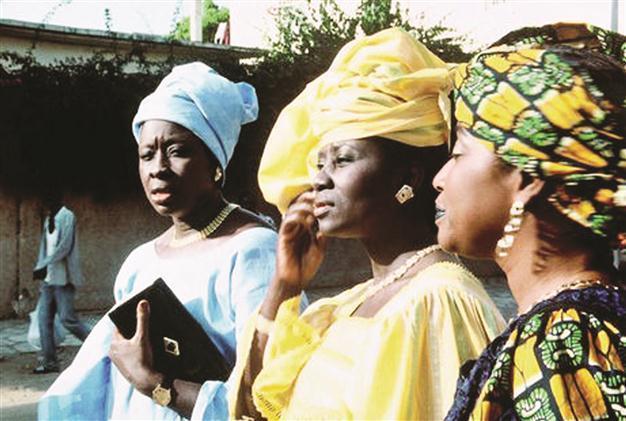Diverse array of African films at Istanbul Modern
ISTANBUL - Hürriyet Daily News

This photo shows a scene from ‘Faat Kine,’ one of the last works of Ousmane Sembene, the best-known name of African cinema sector, tells women’s stories.
Istanbul Modern Cinema is set to present a selection from African cinema, which has enriched the global art realm with unique films despite a relatively short history.The event “Africa!” will present 10 films between Jan. 5 and 22 under the curatorship of Mahir Saul, a professor and specialist in African anthropology at the Illinois University.
This selection of masterpieces from African cinema aims to expose African moviemaking to audiences in Istanbul. The films provide a taste of the wide variety offered by African cinema and feature genres ranging from the traditional arts to the avant-garde.
Films in selection
Some of the films have won awards at the Panafrican Film and Television Festival of Ouagadougou (FESPACO), one of the continent’s most important film festivals, and some are works that became world classics or are really striking in their innovative style.
Among the films is “The Wind” (Finye), featuring the story of two university students who are in love with each other and find themselves in the middle of turbulent events. “Sarraounia,” which won the Grand Prize at the FESPACO Film Festival in 1987, is another offering that tells the story of a local resistance movement initiated by a female leader and reveals one of the darkest episodes of the invasion of Africa by Europeans.
“The Law” is the story of a man who returns to his village after an extended absence. In “Hyenas,” the poor but proud citizens of a small town get excited when they learn that an influential old lady comes to visit. The lady is said to be “much richer than the World Bank.”
“Faat Kine” is one of the last works of Ousmane Sembene, probably the best-known name in African cinema, and also tells women’s stories. “Karmen Gei” is a feast of music and dance against the background of Dakar’s ocean views. “Waiting for Happiness” is a poetic film woven with personal impressions that is partly a collection of memories and partly the portrait of a villag; it develops in a vague area between facts and fiction.
“Drum” is a hit film from the new wave in South African cinema and is based on a true story and true places. Henry Nxumalo, a successful journalist in the 1950s working in a magazine called “Drum” published in Johannesburg, is tired of writing an apolitical sports column, so he begins to treat other daily topics with a touch of political criticism.
“The Bloodiest,” meanwhile, is one of the most thought-provoking African films. In the film, two young women try to get rid of the dead body of an influential statesman. While working to this end, the young women have strange experiences. The last film, “Dry Season,” features tropical Africa in the dry season during which all agricultural work stops, allowing rural people to deal with other
chores or travel. The film screenings are free of charge for the museum’s visitors.
















